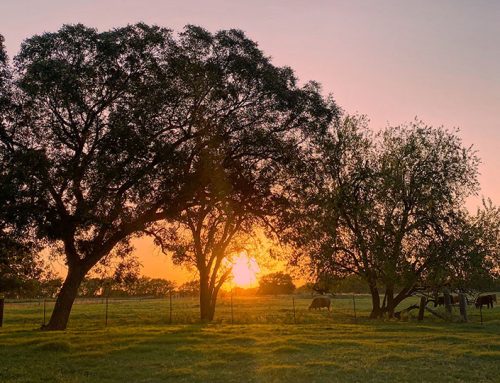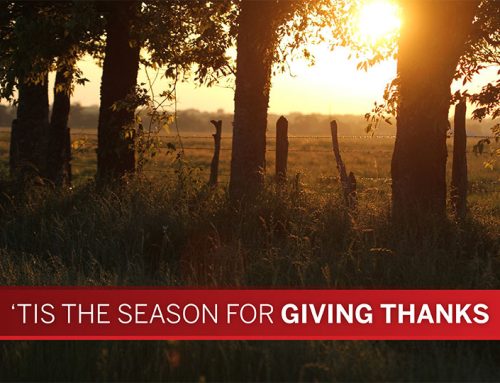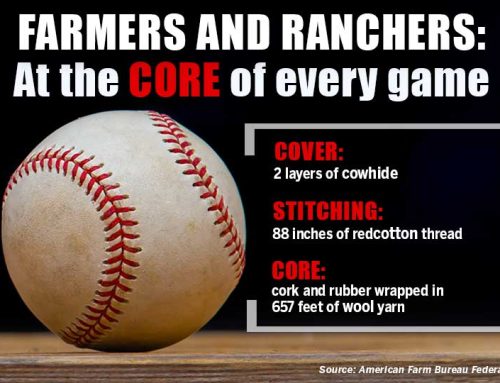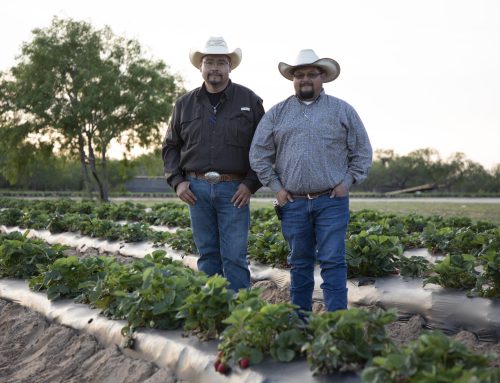By Gene Hall
My mother, one of the world’s gifted peacemakers, often told me, “There are two sides to everything.” Bridging the gap between some anti-agriculture activists and farmers and ranchers is a pretty big challenge, but as Mom said, there are two sides. There are a lot of people out there who have not made their minds up about how we grow food here in the U.S. They understand they don’t have a lot of information, but they have legitimate concerns. Farmers and ranchers really want to talk to them—and we want to listen, too.
It’s Food Check-Out Week in America. The Farm Bureau created this observance for obvious reasons. Using USDA data, we calculated, beginning 16 years ago, the number of days that mythical average American works to earn enough income to buy food for the entire year. For a long time, that day fell in the first week of February, meaning the labor of only slightly more than 30 days could buy a year’s worth of food.
In the last couple of years, due to a host of factors, including drought, higher energy costs and rising demand around the world, food prices have climbed. Still, our average American is only working until the end of February to earn enough dollars to buy that same year’s worth of food.
We tried an experiment, on our two blogs and Facebook page, here at Texas Farm Bureau this week. Food Check-Out Week seemed the perfect time. We posted two letters, actually composed by our own writers. One, on Texas Agriculture Talks, was from a composite consumer, laying out concerns about how food is grown in the U.S. The other, on our consumer blog, here on Texas Table Top, explains what a typical farmer would like consumers to know. The letter from the consumer was based on extensive public opinion research. The letter from the farmer was based on years of observations and conversations with Texas farmers and ranchers.
We heard from readers who don’t like what we do, and we know we won’t change their minds. But, we also heard from some with legitimate questions. Most of all, our farmers and ranchers lined up to invite questions. We uncovered some frustration from some farmers, but also an eagerness to engage in this conversation that we must have.
There are persistent myths out there, and there’s no way to sugar coat the fact that they are not true. One of the most repeated misconceptions is that farmers are held hostage by corporate America. Repeated posts by real farmers pretty much put that one to rest.
However, modern agriculture is a work in progress. We know there is room for improvement. Baseball players have an oft repeated mantra, “We just want to get better every day.” Farmers and ranchers share the spirit of those words. They do want to get better every day. By putting that into practice, they can be better—more efficient—while protecting the resources that make our modern food miracle possible.
We visualize agriculture as a “big tent” proposition. Our Farm Bureau members grow organic and conventional. They produce for local markets and many far away. In this big tent, the consumer is the ringmaster. They will tell us what to grow by what they buy.
Most farms and ranches in America are family owned and multi-generational. Taking care of the land is a sacred matter. Generations of farm families have gone about the business of growing and marketing crops. On the land, there is always something to do, often something that can’t wait.
But farmers and ranchers are beginning to understand that they have to stop and make time to tell their story. They also know they have to listen. We can have that conversation right here.
Gene Hall serves as Texas Farm Bureau’s director of Public Relations. Gene is a regular contributor to the organization’s farm and ranch blog, Texas Agriculture Talks.











Leave A Comment